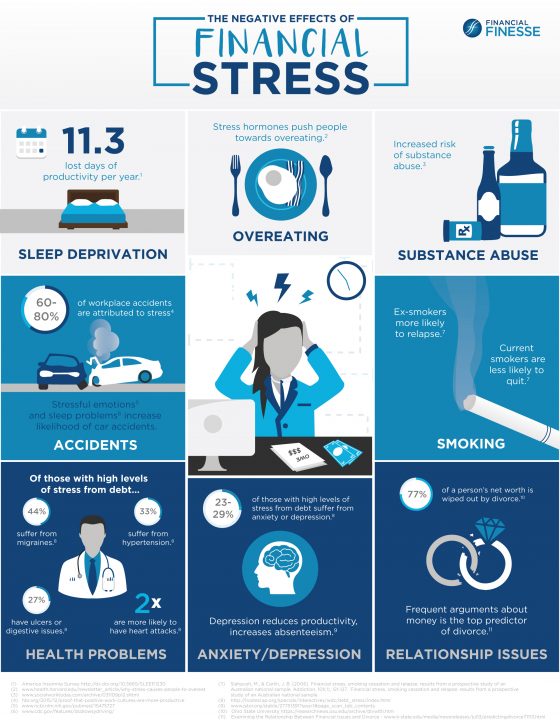Employees stressed out by financial problems could be suffering from lack of sleep and are more prone to depression, heart issues and substance abuse than those with low levels of stress, according to a new study. This anxiety can also impact the workplace in the form of lost productivity, heightened risk of on-the-job accidents and absenteeism.
Most employees worry about their personal finances, with 25% of those surveyed indicating high or overwhelming financial stress. About one-third were assessed as vulnerable to living beyond their means and having serious debt, according to this year’s Stress in America survey, commissioned by the American Psychological Association.
The survey found that:
-
Nine percent of millennial women under age 30 reported overwhelming financial stress compared to 5% of their male counterparts.
-
Lower-income males (making under $60,000 a year) were more likely than lower-income females to report no financial stress, at 13% versus 9%.
-
Women’s stress levels seem to be impacted by the presence of minor children in the household, with 11% of women with minor children reporting overwhelming levels of stress, compared to only 6% without children. Men’s stress levels seem to not be significantly impacted by the presence of minor children, as only 6% of men with children in their household reported overwhelming levels of financial stress, compared to 4% of men without children.
Treatment for financial stress is becoming more common in the workplace. According to a report by Aon Hewitt, 89% of employers are very or moderately likely to implement or expand programs to help employees better manage their money as part of their overall benefits package. The report finds that sleep programs, financial counseling and personal coaching can help stressed employees.
Issues resulting from financial stress include:



![Cliff Wall, Employee Financial Stress Can Impact Job Performance [INFOGRAPHIC]](/sites/default/files/styles/article_image/public/article/aux/1141/cliff_0_0.jpg.webp?itok=VIatqTqx)
 />i
/>i
